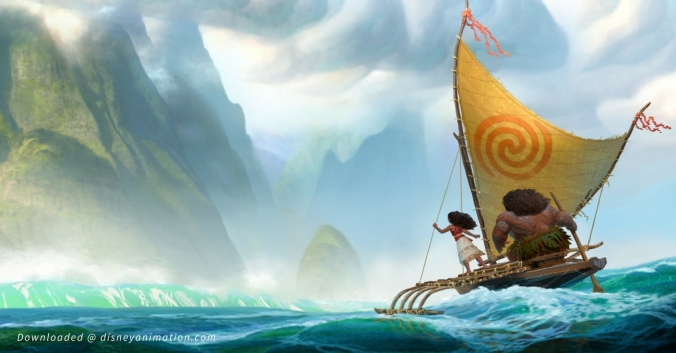 It is easy to see Moana as a reminder to respect nature. But it also much more than that: it specifically forges a link between identity, human flourishing, and sustainable development.
It is easy to see Moana as a reminder to respect nature. But it also much more than that: it specifically forges a link between identity, human flourishing, and sustainable development.
Humans and demigods alike cannot and should not steal the heart of Te Fiti, which has to be put back to where it belongs in order to reverse the bad harvests, save the dying land, and restore the earth to rights. As such, Moana is also a classic cautionary tale of hubris — pride — that reminds us to know our limits and not overreach, which, in this case, means taking for our own the very power to create life itself.
However, Moana is simply not a tale of respecting nature, staying put in a beautiful island, and not going beyond the reef. Only that limit — the power to create life — is not to be transcended, however. Other boundaries are free to be flouted. Moana is all about adventure, of going beyond the reef and seeing how far one can go. It is about (re)discovering one’s identity as a voyager, and expanding our horizons as we jump from island to island.
In linking identity, human flourishing, and sustainable development, Moana offers some interesting, paradoxical lessons.
Classic film logic dictates that the fire demon is Maui and Moana’s enemy. But later on we realize that the demon is actually Te Fiti herself. This revelation has much to teach us: only by recognizing her (dual and real) identity can she be subdued. However, to speak of defeating her — as in a good versus evil plot — is to miss the larger moral of the story: that this is not about battling or subduing Nature, but respecting and revering her life-giving powers. For all the attacks and maneuverings, humanity and the demigods cannot beat Mother Nature anyway.
Indeed, it is by acknowledging their limits — respecting Nature and humbling itself enough not to create life — can the created order get to extend them. In the film, only when the heart of Te Fiti is restored — when humanity (and demigods too) realize their place in creation— do they rediscover their identity as voyagers and launch on new expeditions. Only at that time does Maui recover his Fish Hook, not to mention his full powers. In both cases, it is not a case of gaining power to defeat the enemy, as is usually assumed.
In the same way, just like Moana’s people, we humans must effect a change of consciousness: that we expand into new horizons, conquer new worlds, and advance our technologies by respecting and recognizing our place in Creation, by knowing that life is ultimately not ours to take, and by knowing that we can and should never be arrogant enough to think we are gods. We can flourish and grow in power, if you will, but only if we submit to the rules and laws of Mother Nature.
We don’t want her as an enemy, do we?